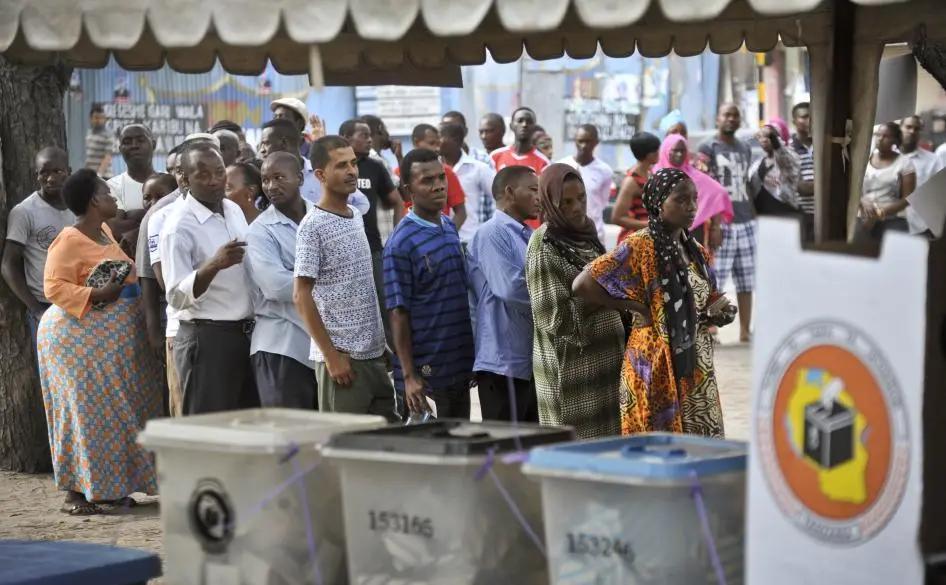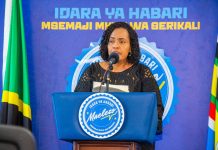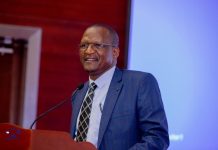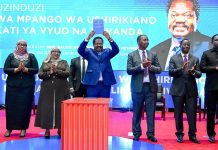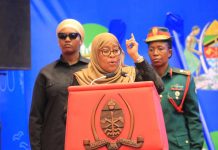Africa-Press – Tanzania. Tanzania will hold its General Elections on 29 October 2025 where citizens will elect the President of the United Republic (Union President), Members of Parliament, and local councillors alongside elections on the island of Zanzibar.
The 2025 general elections serve as a critical test for Tanzania’s Independent National Electoral Commission (INEC) and the Zanzibar Electoral Commission (ZEC) after the disputed 2020 polls. INEC faces mounting pressure amid a tense and polarised environment, further inflamed by the disqualification of major opposition parties, CHADEMA and ACT-Wazalendo, from the presidential race.
The upcoming vote is also regarded as a key test not only for the country’s electoral commissions but also for regional oversight bodies such as SADC and the AU. The elections are crucial for both organisations as they reflect the effectiveness of regional mechanisms for accountability and dispute resolution and how well the regional bodies can uphold their own principles on democratic elections.
Election Administration
Elections across the United Republic of Tanzania are administered by the Independent National Electoral Commission, while in the discharge of its functions the INEC shall, from time to time, consult with the Zanzibar Electoral Commission for administrative issues in Zanzibar. The Commission is composed of a Chairperson and Vice-Chairperson appointed by the President, and other members as specified by law.
Electoral System
President – Tanzania elects its President using a simple plurality (first-past-the-post) system, where the candidate with the highest number of valid votes is declared the winner, even if the candidate does not have absolute majority (50% +1).
National Assembly – 272 members of Parliament are elected via FPTP in single member constituencies and 118 proportional seats are allocated for women representatives. For the 2025 General Election the number of constituencies increased by 8 from 264 to 272 which is also expected to result in a proportional rise in the 30% special seats reserved for women.
Councillors – Councillors are elected via FPTP in single member wards.
Women – According to the Constitution, women representatives must not constitute less than 30% of the seats in Parliament which are reserved for women and are allocated to political parties that receive at least 5% of the votes in the Parliamentary election and in proportion to the number of seats they win in Parliament.
Governance System
Tanzania has a dual governance structure which comprises of mainland Tanzania and the semi-autonomous Zanzibar. The President of the United Republic serves as both Head of State and Government for the United Republic of Tanzania, while Zanzibar is also governed by the head of the United Republic and the President of Zanzibar.
Executive authority rests with the President who appoints a Cabinet to assist in the administration of government affairs. Legislative power is vested in the National Assembly, which enacts laws, approves the national budget, and exercises oversight over the Executive. Judicial authority is vested in an independent judiciary comprising the Court of Appeal, High Court, and subordinate courts. Local governance operates through Regional and Local Government Authorities.
Constituencies
Tanzania is divided into 272 single member constituencies for the purpose of National Assembly elections. 222 are in Tanzania’s mainland and 50 are in Zanzibar.
Voter Turnout
Voter turnout in Tanzania has historically been moderate averaging approximately 63% since the 2001 General Elections. In the 2020 General Elections turnout dropped significantly to 50.7% down from approximately 66% in 2015.
Participation of Women
Women currently hold approximately 37.4% of seats in the National Assembly, largely through special seat allocations proportional to party performance. This exceeds many regional averages but still falls short of the 50% SADC gender parity target. According to the Constitution, women representatives must constitute no less than 30% of the seats in Parliament. Therefore, 30% of the seats are reserved for women and are allocated to political parties that receive at least 5% of the votes in the Parliamentary election and in proportion to the number of seats they win in Parliament.
Electoral Integrity
Observers have noted that while the INEC manages voter registration and election administration effectively, challenges remain in ensuring a fully level playing field for all parties. According to IDEA’s Global State of Democracy 2024, Tanzania performs reasonably well in Representation and Participation, but faces persistent challenges in Political Equality, Civil Liberties, and ensuring fair competition during elections.
For More News And Analysis About Tanzania Follow Africa-Press


